Canyon Precede:ON CF 9 ST review
A stylish high-end e-bike with automatic transmission, and all the comforts for an enjoyable ride through the city
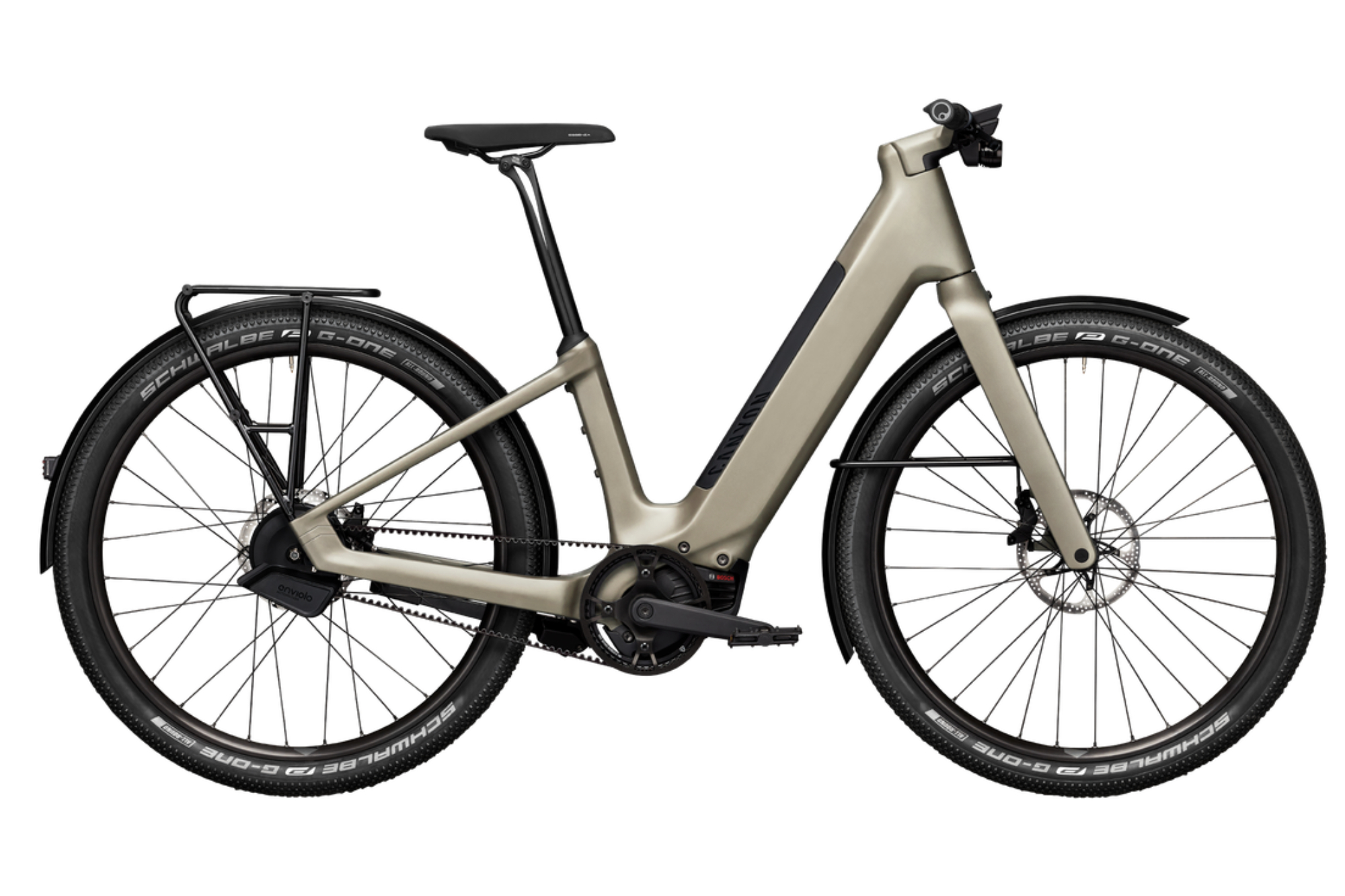
The Canyon Precede:ON CF 9 ST has been built for a rider with disposable income, who is looking for something uber stylish for when they arrive at their lunch meet in a socially responsible way. The Precede:ON is an efficient automatic transmission city bike that performs well in multi-terrain settings whether for utility or for leisure purposes thanks to a powerful motor and control panel. With built-in accessories such as lights, mudguards, rack and kick-stand all the trappings are there to make for a comfortable ride with style, though they do limit the range and add to the weight so this is an e-bike for shorter journeys.
-
+
Stylish finish
-
+
Efficient motor
-
+
Automatic gear changes
-
+
Built-in lights
-
-
Weight
-
-
Limited range
You can trust Cycling Weekly.

Canyon's Precede:ON arrived amid great expectations. After all, it won the German Design Award for 2021 and offers what the brand says is the first automatic and continually-variable shifting system, as well as a completly cable free outward aesthetic.
The Precede:ON CF 9 ST is available in two guises: either step-over or step-through. Measuring in at 165cm, I tested size Small step-through model.
Frame
The champagne coloured Precede:ON - with its integrated stem and handlebar, and Supernova front light - is quite a slick and stylish machine. To provide an automotive example, it's a Rolls-Royce among Fords.
Canyon has teamed up with TRP to design brake levers that allow all of the cables to be internal when paired with a one-piece Canyon CP02 handlebar and stem (cockpit). Internal cable routing such as this increases the time taken when maintenance duties call, but I would hazard a guess that most owners would not intend to complete a re-cabling job on their own.
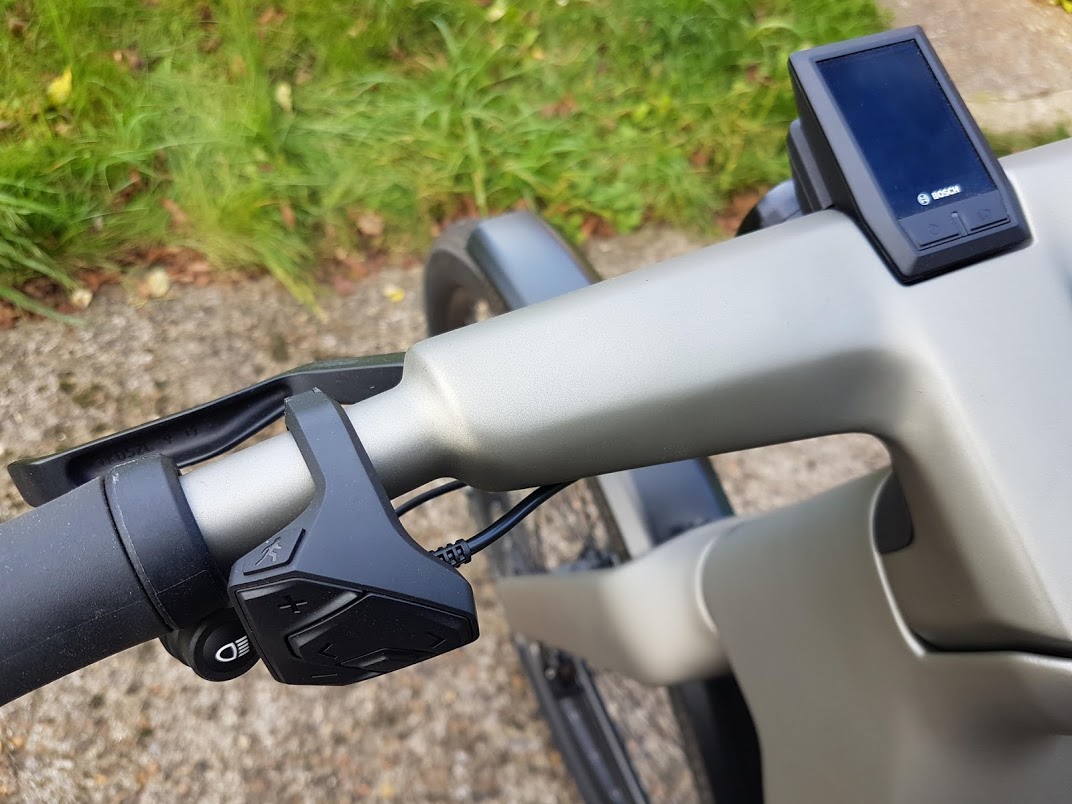
The frame is of course constructed from carbon, as is the fork - which is a good thing as even utilising this material the built weight came in at 23.2kg for my size small.
Motor System
The Precede:ON is powered by the newest generation of Bosch motor, the Performance Line CX (Gen4) with a 500 Wh battery and a Gates belt drive.
According to Canyon, the range of the battery can go up to 100km, but this depends on factors like the power mode, the terrain, and the weight of the rider. Note also, that a trailer can be attached to the Precede:ON, and can tow an additional 30kg. This will further lower the range of the bike, particularly if you ride in turbo mode.
When I cycled mainly in sport mode on gently undulating terrain, with the lights on intermittently, I found the range to be around 65km.
This does not compare particularly favourably with the Ribble AL e, which we found provided about 100km or the BMC Alpenchallenge at 150 to 200km. With an additional booster battery, the Scott Addict e-Ride provides a claimed 120km (with ~02,200 metres of climbing) for a 73kg rider. However, that's the Ribble, BMC and Scott without helpful commuter trinkets like lights and luggage. In short, the Canyon Precede:ON may not go quite as far as competitors, but it is designed with shorter city trips in mind and comes with all the features provided to make journeys easier and more comfortable.
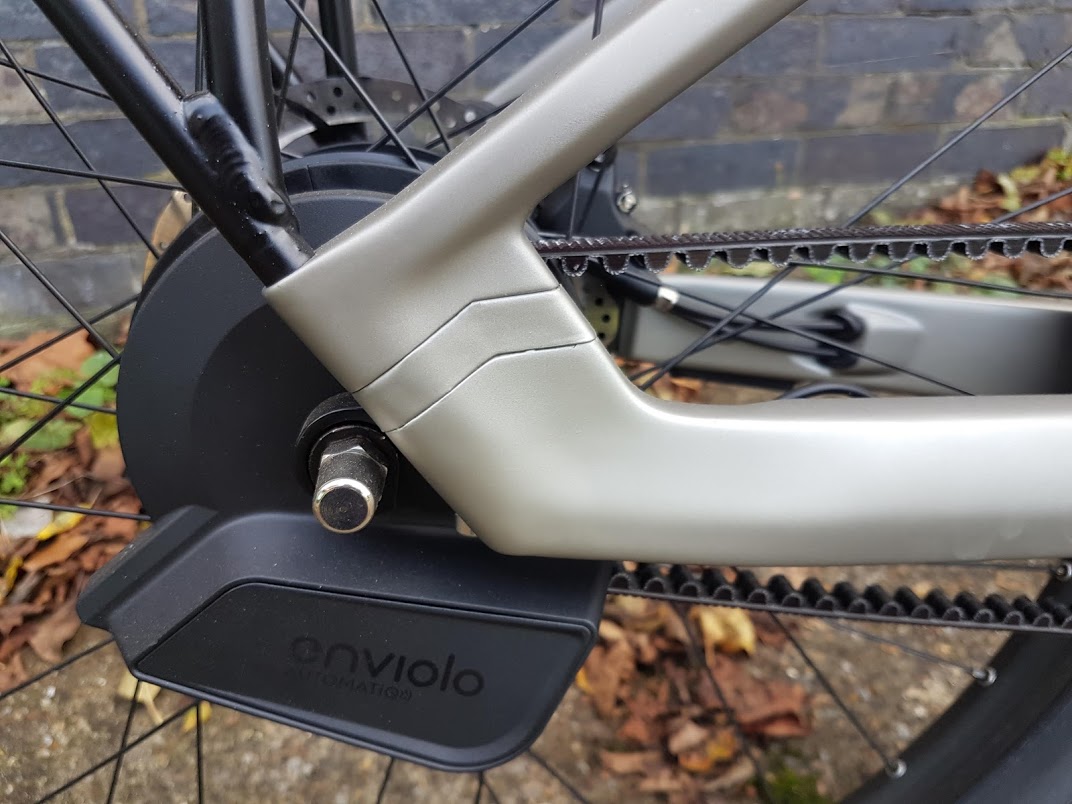
The 85Nm of torque provided is also of note, it's higher than traditionally specced on the likes of the aforementioned Ribble and Scott, and closer to the high torque motors found on mountain bikes. This gives a greater 'kick' when required, for example, moving away from the lights though it's less natural than the lower torque designs favoured by e-road bikes targetted at those looking to hit the hills with their buddies.
Charging the battery can be done separately from the bike, by unlocking its housing and removing it from the down tube. From empty to 100 per cent takes around 5 hours.
The control panel of the Precede:ON, the Kiox, sits on the handlebars, where you can programme the settings you would like on the Bosch Kiox display panel. As well as the cadence, other parameters that can be adjusted include the power settings – Turbo, Sport or Tour. Trip information is also recorded on the panel, such as distance, trip time, power, heart rate, average speed, maximum speed.
Very importantly the range is also displayed, not only in terms of percentage of battery remaining but also the number kilometres when ridden at the different the power settings. This is really useful information, as I must say that range is always the thing that plays on my mind when doing a long bike ride on an electric machine.
As the Kiox panel is like the “nerve centre” of the Precede:ON, taking it off the bike can serve as an anti-theft measure. It would be difficult for the opportunist thief to make off with 23kg of bike without a motor.
Components
As alluded to already, you won't need to touch the gears on this bike as the Precede:ON boasts automatic transmission. All you need to do is set the desired cadence you wish to ride at – for example 75, 80 or 85, and the Enviolo hub internal gears (Gates CDX 24T cassette with a 50T Belt ring) and the Gates belt drive (much cleaner and lower maintenance than a chain) automatically do the work for you. So you don't need to worry about straining your legs in a grinding low cadence on a hill.
Auto shifting itself is not new - Shimano's Steps E6100 can adjust the gears per the gradient, too. The difference is that Enviolo use NuVinci technology, which offers a stepless Constantly Variable Planetary gear (CVP) and thus an 'infinite number of ratios'. It's the difference between that feeling of not quite being able to locate the perfect gear, and opting for any choice along a sliding scale. Not only that, the system allows for shifting under load so there are no 'clunks' or complaints as you auto shift down right in the middle of a particularly nasty climb.
Flat, ergo handlebars were really comfortable and great for my wrists, and the Fizik Essenza saddle sits atop a flexi seat-post that adapts to your natural seating position. This is not necessarily a feature that I think about when riding a bike, but after you’ve been riding one, and then you get on a rigid bike, it is then that you realise what a difference this makes to bike comfort.
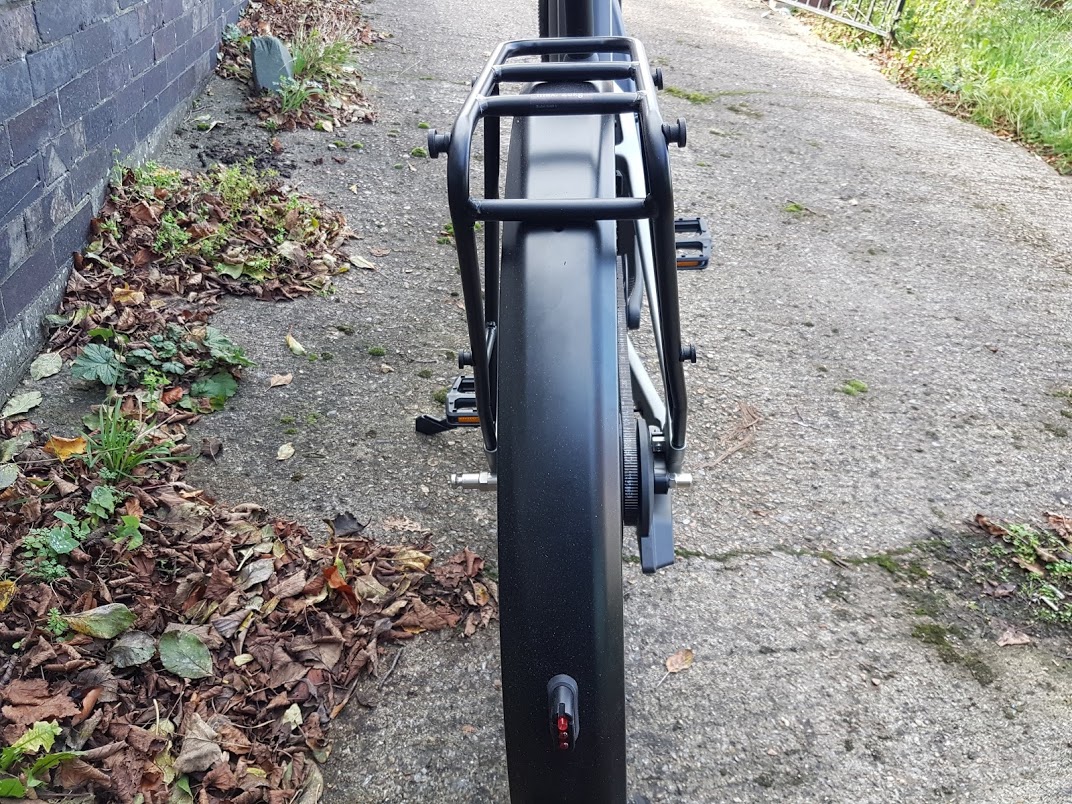
All this makes the experience of riding the Precede:ON a real pleasure, and that’s even before the trimmings like the built-in Supernova front and rear lights, plus fenders (mudguards) and a pannier rack. I really like the fact that there is a kick-stand too. I think more city bikes should have this feature, and it’s just one less thing to have to fiddle with when you come to a stop with your bike – especially when it is as weighty as this one.
As mentioned above, security is dealt with by way of removing the control panel when the bike is parked. Furthermore, there is an integrated lock bracket in the frame.
Performance
When setting off, for example from traffic lights you feel a kick as the motor fires into action. I preferred to set off in Sport or Tour mode, as Turbo does have quite a pull.
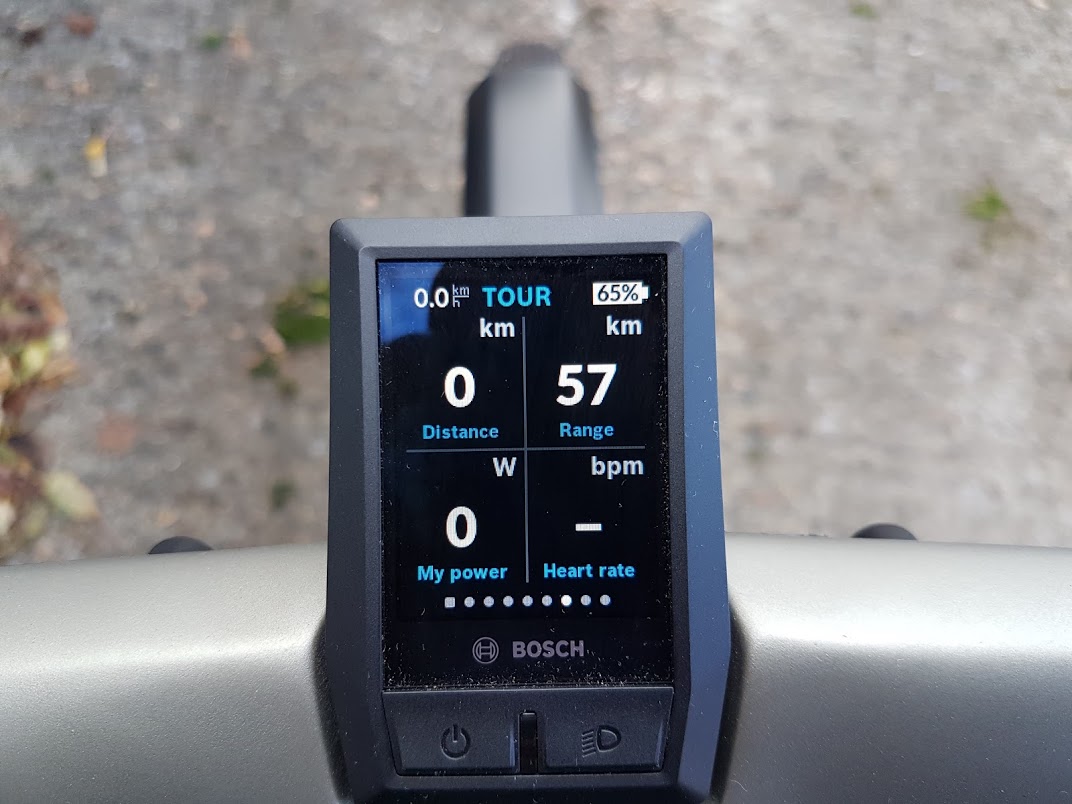
Riding around London I didn’t worry about the Precede:ON when going on excursions through different off-road, cut-through routes or gravelly trails, since the 57mm Schwalbe G-one tyres are built to take on anything. This makes the bike quite a work-horse that you can rely on as you zip around your local area.
While the Precede:ON has all the trappings of a high end e-bike, it does come at a cost in a few ways. Firstly, the weight is a consideration. It's sometimes necessary to lift or carry a bike: up steps, loading it into a car or at a train station. We might turn up at the Greenwich foot tunnel and find the lifts are out of order. And who knows, we might be silly enough to set off without charging it up and run out of range while riding. I have done that before!
Regardless of the reason - I like to know that I can wheel or carry my bike if need be, or I can pedal it when out of range. Even with the battery removed, the Precede:ON weighs almost 20kg. While I have managed to pedal other e-bikes without a motor, it would be very difficult for me to that with the Precede:ON, especially should the road turn upwards.
Personally, I like to know that my bike can pass the “emergency” test, if push came to shove, or lift. I would struggle with the Precede:ON in such a situation, and I would have to rely on the kindness of a taxi driver to get the bike into their vehicle!
The weight of the Precede:ON means that it's very important that everything works perfectly. From my experience everything did work, but I still find its heft to be a detraction from its otherwise perfection.
Value
Another thing to consider with the Precede:ON is the price tag. At £4,699, (and £3,999 for the non-automatic transmission CF 8) the price is commensurate with the high-end specification, and as ever with Canyon there's a saving made possible by the direct only business model.
However, much lighter hybrid style e-bikes are available for considerably less. What you're paying for here is the Rolls-Royce features: the crème de la crème of invisible cables, in-built lights, and autoshifting. They're not necessary, but they are nice to have.

Thank you for reading 20 articles this month* Join now for unlimited access
Enjoy your first month for just £1 / $1 / €1
*Read 5 free articles per month without a subscription

Join now for unlimited access
Try first month for just £1 / $1 / €1
Get The Leadout Newsletter
The latest race content, interviews, features, reviews and expert buying guides, direct to your inbox!
Maria David is a freelance writer who spent five years living and working in Paris
-
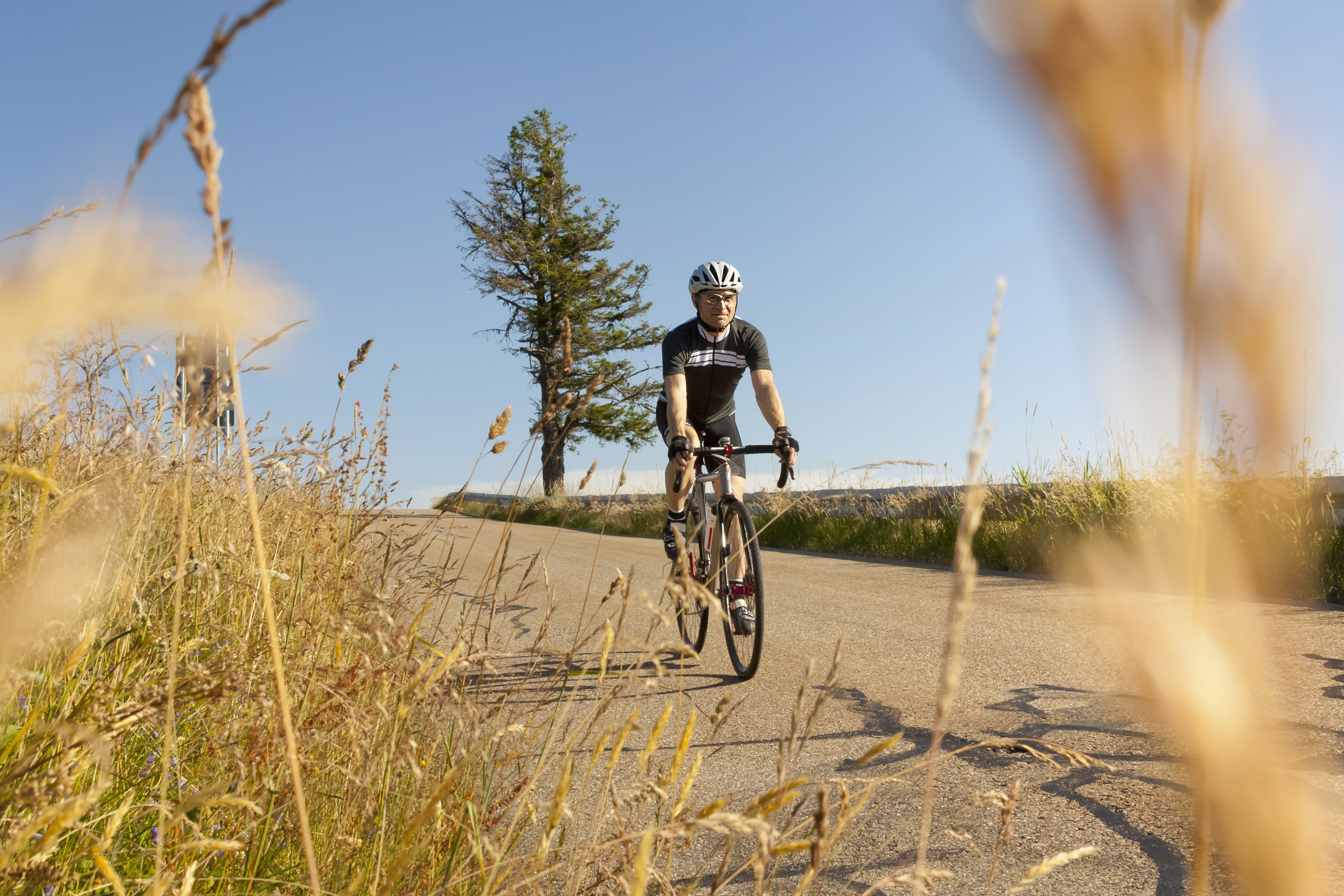 Hayfever and your riding: how to combat it as the pollen strikes
Hayfever and your riding: how to combat it as the pollen strikesExplanations, medications and holistic measures to make your spring and summer riding more enjoyable
By James Shrubsall Published
-
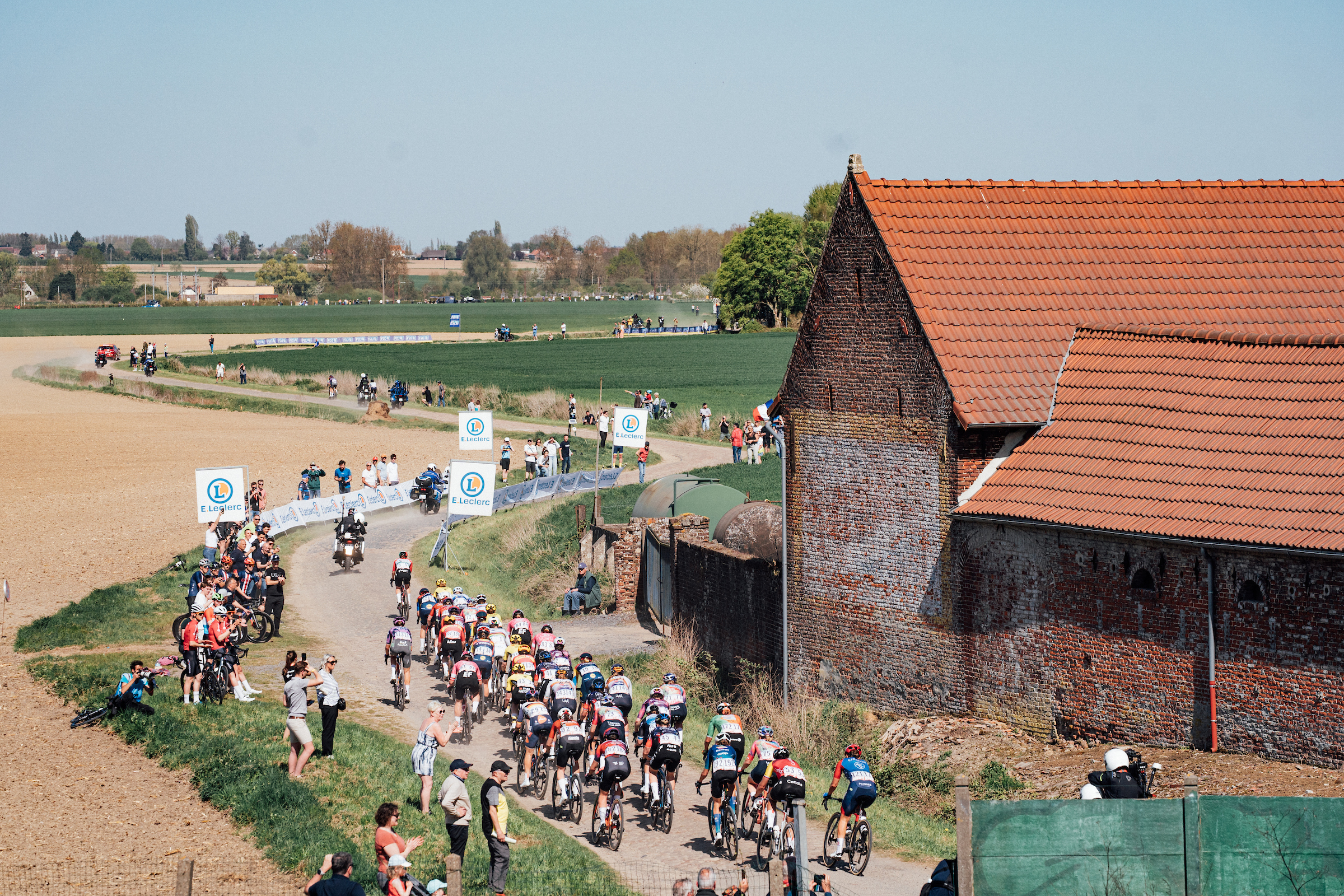 I went to Paris-Roubaix Femmes and was shocked at how it is still treated as secondary to the men’s race
I went to Paris-Roubaix Femmes and was shocked at how it is still treated as secondary to the men’s raceThe women’s version of the Hell of the North is five years old, but needs to be put more on equal footing with the men
By Adam Becket Published
-
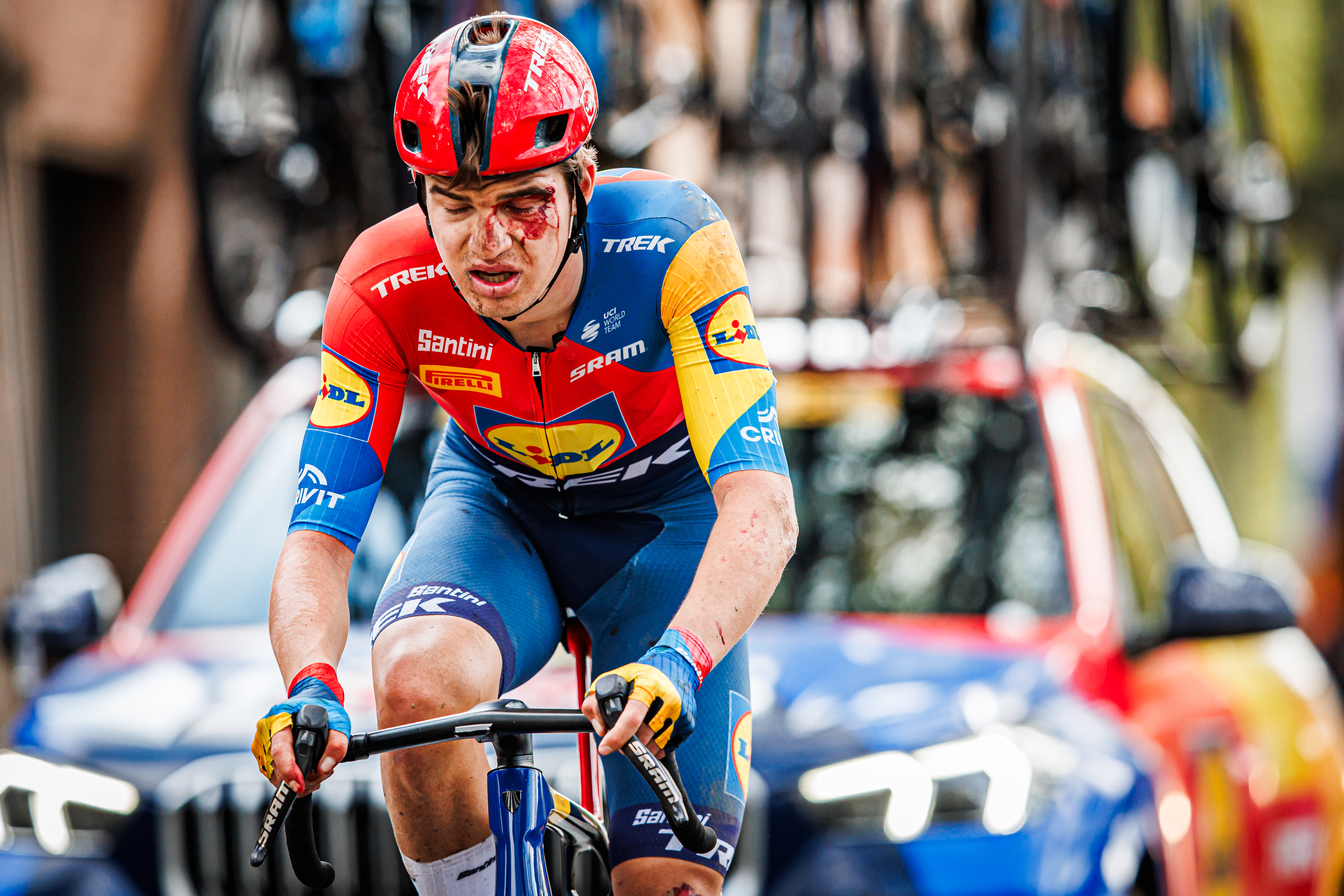 Broken hips, hands, and collarbones: Paris-Roubaix's lengthy injury list lays bare brutality of race
Broken hips, hands, and collarbones: Paris-Roubaix's lengthy injury list lays bare brutality of race"It probably wasn't the best idea to continue," says one of weekend's many wounded riders
By Tom Davidson Published